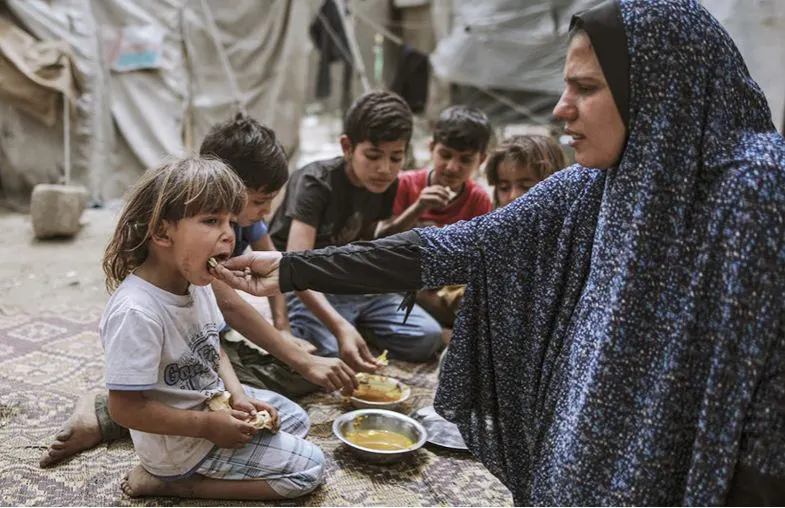Almost the entire population of Gaza risks “sliding into hunger hell” unless fuel deliveries are allowed to resume and there is a rapid increase in food supplies, an official from the UN’s World Food Programme warned on Thursday.
It came as the UN said 2.2 million Palestinians in the territory now need food aid to survive. The WFP said that with “winter fast approaching and unsafe and overcrowded shelters that lack clean water, people are facing the immediate possibility of starvation.”
Abeer Etefa, the WFP’s senior regional com-munications officer for the Middle East and North Africa region, said: “The collapse of food supply chains is a catastrophic turning point in an already very dire situation. Gaza was not an easy place to live in before Oct. 7, and if the situation was better before this conflict, it’s now disastrous.”
Palestinians in the Gaza Strip are growing in-creasingly desperate in their attempts to obtain bread and other essential food supplies, and cases of dehydration and malnutrition are rapidly increasing “by the day,” she added.
People are lucky if they have one meal a day and their options are mostly limited to canned food, said Etefa, “if it is actually available.”
Although aid trucks are “trickling into Gaza,” it is proving difficult to get the small amounts of food and water that cross the border to those in need because roads have been damaged by the war and fuel is in very short supply as a result of the Israeli blockade.
“The existing food systems in Gaza are collapsing,” Etefa said. “Food production has come to an almost complete halt. Markets have collapsed, fishermen cannot access the sea, farmers cannot reach their farms and the last bakery that the WFP has been working with has closed its doors because of the shortage of fuel.
“Shops have run out of food supplies. The bakeries are unable to operate because of the fuel and clean water shortages, or because they have sustained damage. The last remaining mill has also been hit and stopped operating.”
There were 130 bakeries in Gaza before the war. Eleven of them are known to have been been hit by airstrikes. Others closed after running out of fuel. As a result, supplies of bread, a staple food for Gazans, have dried up. The WFP was also forced to shut down a local program that since the start of the war had been providing fresh bread for 200,000 Palestinians living in shelters.
With gas and electricity in desperately short supply, Etefa said people have been burning wood to cook or bake. Perishable food is “not really an option at all” because there is no power for refrigerators. Local markets have shut down completely, only about 25 percent of shops in Gaza remain open and those that do have very limited stock, she added. Small quantities of food can sometimes be found but it is sold “at alarmingly inflated prices” and is of little use without fuel and gas to provide the power to cook it. —AFP









